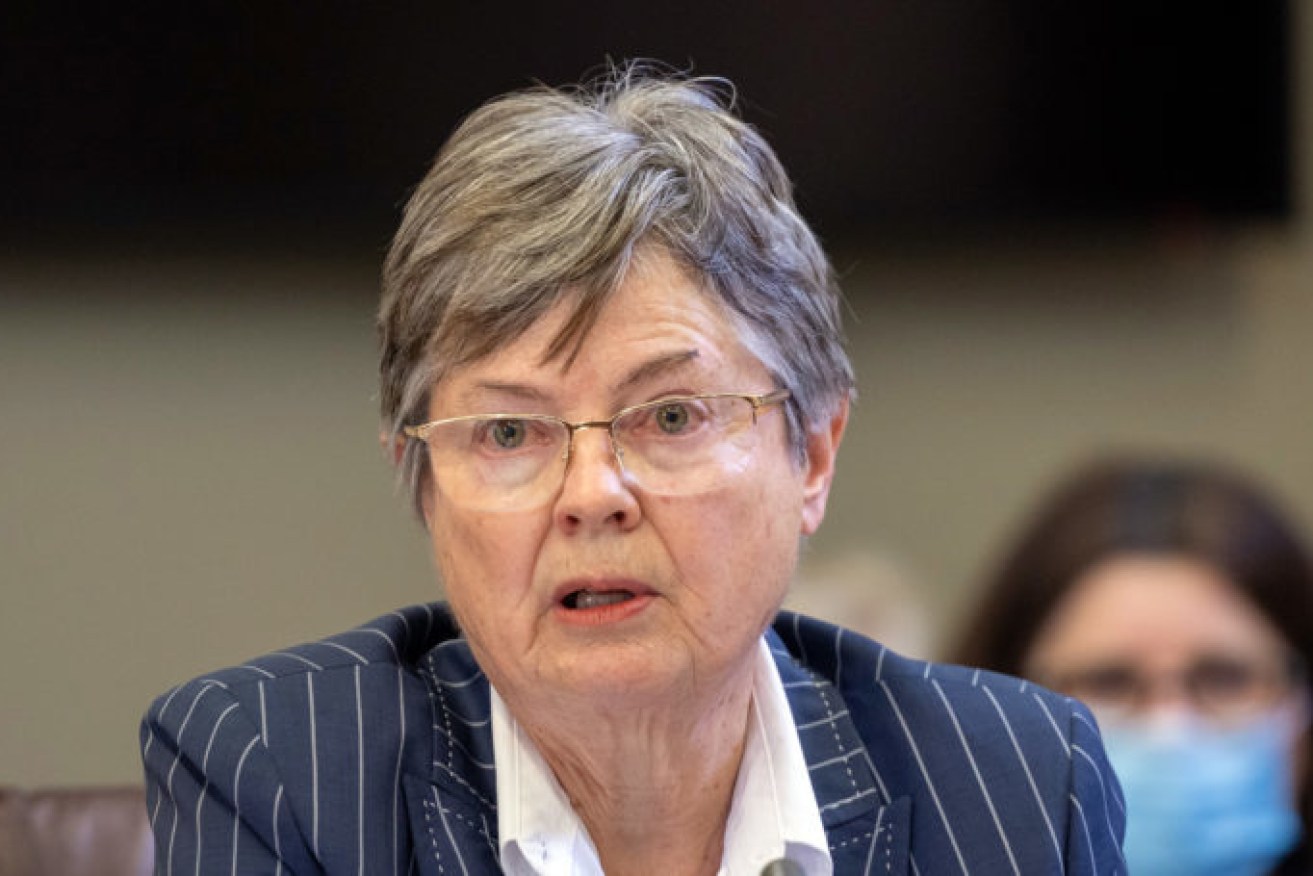ICAC finds SA Health still at risk of corruption
More than four and half years after then Independent Commissioner Against Corruption Bruce Lander warned SA Health had a culture that enables corruption, the current commissioner says not enough has changed.


Independent Commissioner Against Corruption Ann Vanstone. Photo: Tony Lewis/InDaily
The Independent Commission Against Corruption tabled its Integrity Trade-off report today as an update on issues identified in Bruce Lander’s December 2019 report Troubling Ambiguity: Governance in SA Health.
In December 2019, InDaily reported that Lander found that poor conduct and practices are “common and accepted” within SA Health, and that the agency fails to adequately monitor its highest-paid staff – specialist doctors.
Today, the current ICAC commissioner, Ann Vanstone, said that ICAC not only continues to receive complaints about the attendance of these clinicians and the separation of the private and public practices but the commission’s investigations also “continue to be thwarted by the deficiencies identified by Lander”.
“There is a real risk that corruption and misconduct continues to occur within SA Health, but, as before, cannot be detected or addressed,” Vanstone said.
“We continue to be frustrated by poor systems and the apparent lack of will to change them.”
The latest report provided six examples of ICAC not being able to investigate allegations against clinicians who weren’t working their contracted hours or using public hours for private practice.
Vanstone says in the report that “regrettably, those investigations could not be pursued in any meaningful way because of the very issues Mr Lander highlighted.”
She also pointed out that a similar case involving a nursing manager at a local health network was easily resolved because the timesheets were reconciled with the building access records – straightforward governance procedures not implemented for the specialist doctors.
The report outlines that on 14 July 2021 the then chief executive of the Department of the Premier and Cabinet wrote to Vanstone to advise that while work on fixing the system was progressing, negotiations regarding the Salaried Medical Officers Enterprise Agreement continued.
“Curiously, it was determined that policy changes and reforms would be progressed after the enterprise bargaining process had concluded. Given that the industrial instruments seemed to be the problem, it is unclear why proposed changes to those arrangements were not included in the negotiation process,” Vanstone said in her report.
“In relation to the above, a senior officer at SA Health responded: ‘Proposed policy changes and reforms relating to the issues raised in Troubling Ambiguity were considered as part of the negotiation process. It is standard practice not to progress industrial policy changes related to agenda items during a bargaining process as Government is required to negotiate in good faith. It is considered bad faith to be actively negotiating an outcome on a particular policy matter while actively implementing a related workplace policy.’
“This response undermines confidence in a robust approach to the problem.”
Vanstone then met with the new SA Health chief executive Dr Robyn Lawrence in October 2022 to raise her frustrations.
“The Chief Executive pointed to the impact of the COVID-19 pandemic on her workforce,” Vanstone said.
“She informed me that recent attempts to reform clinician job planning requirements had been resisted by the South Australian Salaried Medical Officers Association. The Chief Executive expected a similar response to any efforts by SA Health to reform the arrangements relating to clinicians’ working hours and rights of private practice.”
By November 2022, SA Health had provided Vanstone with a summary of what had been done by SA Health in response to the 2019 report.
With little changed since that excoriating report, Vanstone tabled three recommendations today.
She recommended that SA Health require “all staff, including clinicians, to complete their timesheets in a manner that accurately reflects their working hours”; implement a policy to accurately monitor the income generated and the public resources used when clinicians are working privately; and address “deficiencies in the industrial arrangements” before enterprise agreements are next reviewed.
“Complaints and reports continue to be made about clinicians’ time and attendance, and rights of private practice,” Vanstone concluded.
“While every effort is made to investigate them, the allegations cannot be meaningfully pursued because of the very issues raised in Troubling Ambiguity. Opportunities to hold individuals to account continues to be undermined by the existing scheme.
“Inevitably, the reputation of the many clinicians who act with integrity will be tainted by those who do not. That is an unfortunate consequence of a system that is ripe for abuse.”
Lander said in 2019 he was “very confident” there was corruption within SA Health, but that it was difficult to ascertain because of poor record-keeping and reporting processes, which he cited as a key reason for the malaise.




